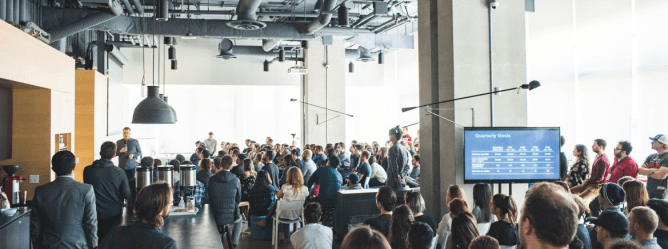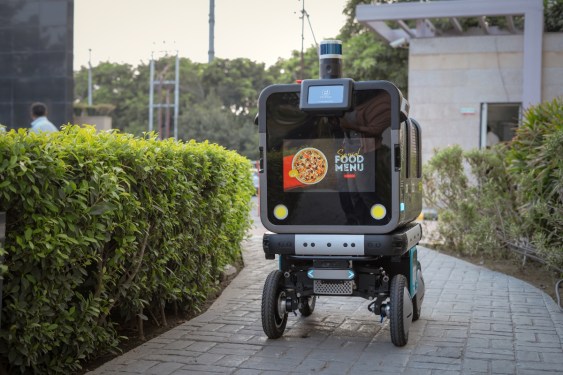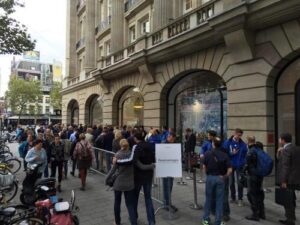The Fabricated Story of Mr. Daisey and Apple’s Chinese Factories
At over a million digital listens, ‘Mr. Daisey Goes To The Apple Factory’ is This American Life’s most popular episode. That’s no small feat for one of the world’s most well-known radio shows. When it aired, it set off yet another firestorm of controversy regarding the ethics of Apple (and other large tech companies) using cheap Chinese labor through major manufacturers like Foxconn.
Mr. Daisey, who has been touring for years with a monologue about his visit to the factories there and the moral implications thereof, provided details to This American Life to put together what was really a powerful and attention-grabbing piece. Unfortunately, in the words of This American Life’s host and producer Ira Glass, ‘We’ve learned that Mike Daisey’s story about Apple in China – which we broadcast in January – contained significant fabrications. We’re retracting the story because we can’t vouch for its truth.’
The Investigation
This week’s show will take a full hour to detail the errors and fabrications in Daisey’s report. The episode’s lurid details provoked many responses on the web, including several editorials on TechCrunch. These details were not entirely new, and we have written about the labor and environmental conditions in Chinese factories before, but such a discussion is always relevant.
But although the discussion was fruitful, it seems it may have been based partially on false information. Without duplicating too much of the blog post, press release, and forthcoming broadcast, it seems that Marketplace’s China correspondent Rob Schmitz thought that some of Daisey’s claims didn’t add up. The fact-checking team at This American Life (not NPR, as previously written) had already cleared the story despite some small discrepancies, but some things Schmitz was personally acquainted with stuck out – for instance, the idea that Daisey had met in Shenzhen with workers who had been poisoned by n-hexane.
The poisoning occurred, no doubt, but it occurred a thousand miles away in Suzhou, a place Daisey never visited. He also contacted Daisey’s interpreter, whom Daisey claimed to be unable to reach, and apparently for good reason. She contradicted much of what Daisey claimed in his monologue and on the radio.
Schmitz’s Investigation
Schmitz has written up his investigation here. In the investigative segment shortly to air, Marketplace’s Schmitz confronts Daisey with this information. His response (echoed in a blog post): ‘I’m not going to say that I didn’t take a few shortcuts in my passion to be heard. My mistake, the mistake I regret, is that I let my emotions and my desire to make a point get the better of me.’
The Aftermath
This revelation has left many questioning the validity of Daisey’s claims and the impact it may have had on the conversation around Apple’s supply chain and labor practices. While some argue that Daisey’s fabrications were justified by his passion for the cause, others see this as a serious breach of journalistic integrity.
As This American Life struggles to come to terms with what happened, it raises questions about the role of fact-checking in journalism and the importance of verifying information before presenting it to the public. It also highlights the challenges of reporting on sensitive and complex issues like labor practices in China.
The Impact
The repercussions of Daisey’s fabrications will likely be felt for a long time, both within This American Life and in the broader journalism community. As TechCrunch noted in an editorial, ‘Daisey’s fabrication is a reminder that even with the best intentions, we can still get it wrong.’
In conclusion, the story of Mr. Dasey and Apple’s Chinese factories serves as a cautionary tale about the importance of fact-checking and verifying information before presenting it to the public. As journalists, it’s our responsibility to ensure that the stories we tell are accurate and reliable, even if they’re difficult or uncomfortable to hear.
Related News
- Meta execs obsessed over beating OpenAI’s GPT-4 internally, court filings reveal
- Google’s NotebookLM had to teach its AI podcast hosts not to act annoyed at humans
- TikTok users’ attempted migration to Chinese app RedNote isn’t going too well
- A comprehensive list of 2024 and 2025 tech layoffs
Stay up-to-date with the latest news in technology by subscribing to TechCrunch’s newsletters.















